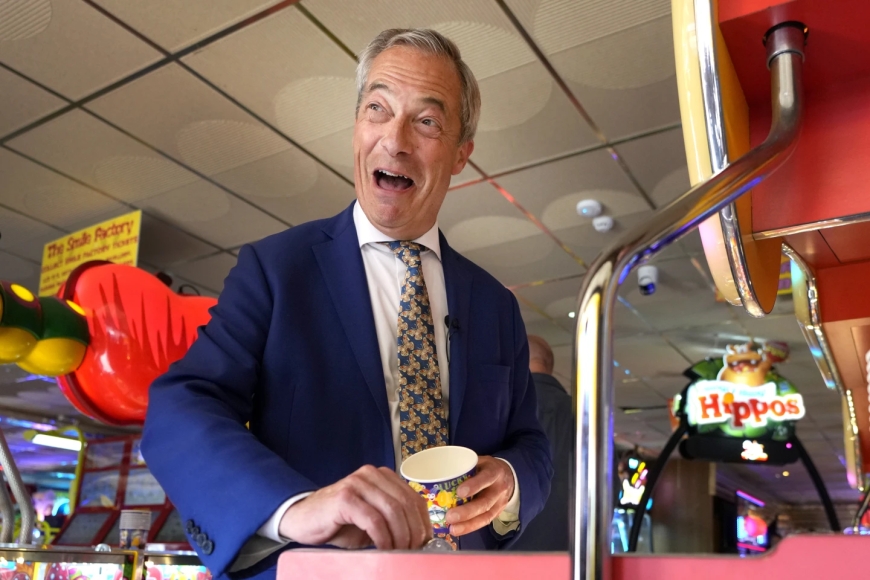Nigel Farage Faces Backlash for Alleging West Provoked Putin's Invasion of Ukraine

Nigel Farage, leader of the Reform UK party, has sparked widespread criticism after suggesting that Western actions, including NATO and EU expansions, provoked Russian President Vladimir Putin's invasion of Ukraine. His controversial remarks come amidst escalating tensions ahead of the July 4 general election in Britain, where Farage aims to challenge the ruling Conservatives.
In a televised interview with BBC on Friday, Farage, a former member of the European Parliament, linked the expansion of Western alliances eastward with Russia's aggressive actions. He claimed to have forewarned of a potential conflict in Ukraine as early as 2014, though the timing of his warnings in relation to Russia's annexation of Crimea remains disputed.
"It was obvious to me that the ever-eastward expansion of NATO and the European Union was giving Putin a pretext to rally his people and justify military action," Farage asserted. "He's exploited our policies as an excuse for his aggression."
Farage's comments drew swift condemnation from across the political spectrum, with critics labeling him a Putin apologist. Conservative Prime Minister Rishi Sunak rebuked Farage, asserting that such views were "completely wrong" and dangerous for Britain's security and its allies.
"This kind of appeasement only emboldens Putin further," Sunak stated, highlighting the grave implications of Farage's rhetoric on international relations and security alliances.
While Farage remains influential among certain segments of voters who align with his strong stance on immigration and Brexit, many within the Conservative Party have refrained from extensive criticism, wary of alienating their voter base. His party, Reform UK, is contesting its first general election, buoyed by Farage's candidacy in Clacton, southeast England, where he is favored to secure a seat after multiple unsuccessful attempts.
Keir Starmer, leader of the Labour Party and a contender for prime minister, condemned Farage's remarks as "disgraceful," emphasizing the consensus among political leaders that Russia bears responsibility as the aggressor in the Ukraine conflict.
The upcoming election is set against a backdrop of geopolitical uncertainty, with implications not only for Britain's domestic politics but also for its international alliances and policies. As Farage's comments continue to reverberate, they underscore divisions within British politics over foreign policy and national security strategies.
The controversy surrounding Farage's statements reflects broader debates over Britain's role in global affairs and its approach to managing relations with Russia amid ongoing international crises.
Stay tuned as developments unfold in the run-up to the pivotal general election, shaping the future trajectory of British politics and its international standing.













































